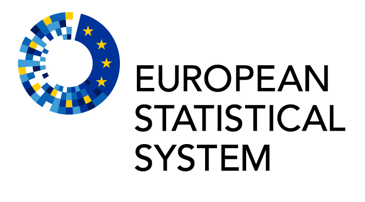Endorsement of the European Strategy for Environmental Accounts 2019-2023

Every five years since 2003, the European Union has articulated its strategy for further developing and promoting the use of SEEA accounts through the European Strategy for Environmental Accounts (ESEA). The implementation of these strategies has allowed some accounts to become solidly anchored in EU policies and made the EU a leader in environmental accounting worldwide.
In February 2019, the European Statistical System Committee, which consists of the Chief statisticians of the EU Member States, endorsed the ESEA 2019-2023, with the goal of environmental accounts meeting the user needs for high quality data which can contribute to policy and decision making. The new ESEA has been crafted to align with the current policy priorities of the European Union. In the past few years, multiple important initiatives were launched and became solidly anchored in EU policies. These initiatives include monitoring European progress towards the SDGs; protecting, conserving and enhancing natural capital; promoting the circular economy, low-carbon economy and resource efficiency; the European Semester and the 7th Environment Action Programme. All of these initiatives require more comprehensive and robust data sets to monitor and evaluate progress.
To achieve the goals of high quality data and increasing use of the accounts, four key objectives were identified:
- Continue improving the quality of the current European environmental accounts, including extending time series. Current European accounts are: air emissions, environmental taxes, environmental subsidies, material flow accounts, environmental protection expenditure, green growth & jobs (EGSS), energy flow account and forest accounts. In particular, this objective will prioritize further consolidating and improving the existing environmental accounts (mandatory data based on Regulation (EU) 691/2011 and voluntary extensions). In addition, the strategy recognizes that high quality environmental statistics serve as the basis for high quality environmental accounts.
- Serve user needs by offering further extensions, applications and indicators, including footprints, based on the current European environmental accounts. This objective aims to enhance the usefulness of the accounts for policy analysis and will include a reflection on how the accounts can play be used to respond quickly to emerging policy needs, particularly on cross-cutting issues such as sustainability, circular economy and natural capital.
- Better communicate the relevance and content of the European environmental accounts. The ESEA 2019-2023 recognizes that better communication and promotion of the accounts is an investment which requires deliberate effort and resources. To this end, the strategy noted the UNCEEA global communications strategy to mainstream the use of the SEEA in integrated policy making.
- Enlarge the European environmental accounts with new areas (in particular: ecosystem accounts, environmental subsidies and similar transfers, resource management expenditure accounts, land accounts, forest accounts, water accounts, subsidies or support measures potentially harmful for the environment).
In addition, a fifth priority is to continue supporting producers of accounts with handbooks, compilation tools, training, grants etc. and contribute to the global development of the SEEA standard.
Moving forward, the ESEA 2019-2023 will be implemented by Eurostat together with the Directors of Sectoral and Environmental Statistics and Accounts (DIMESA) and the working groups on environmental accounts and on monetary environmental statistics and accounts.
